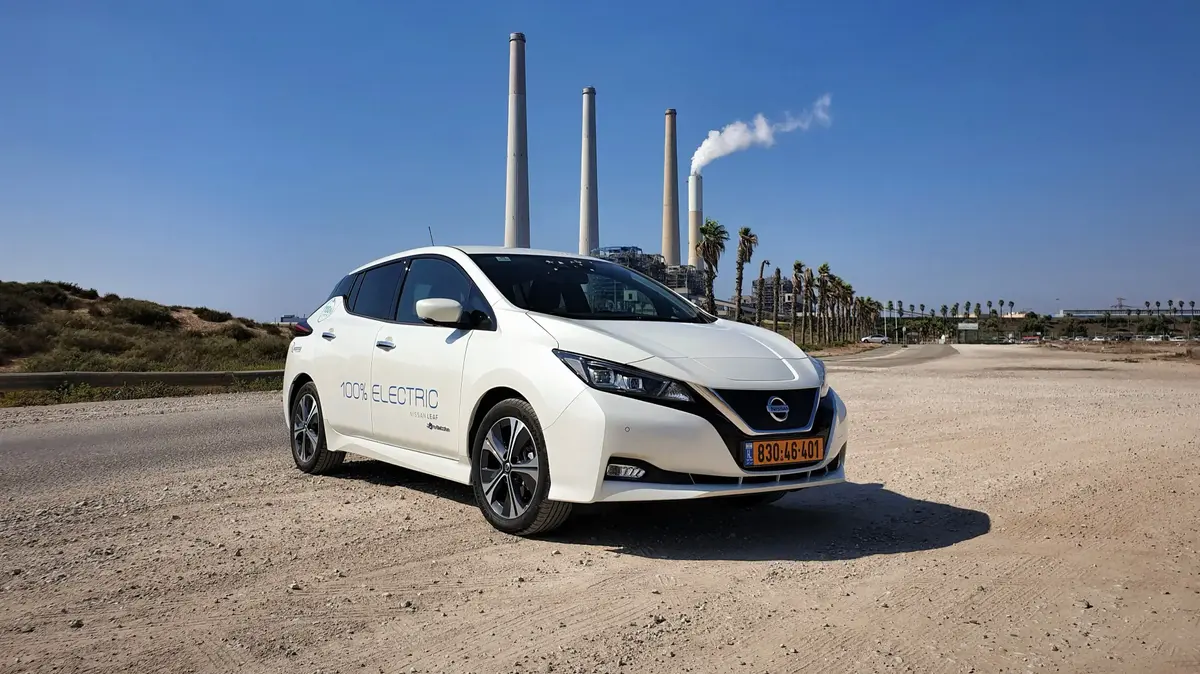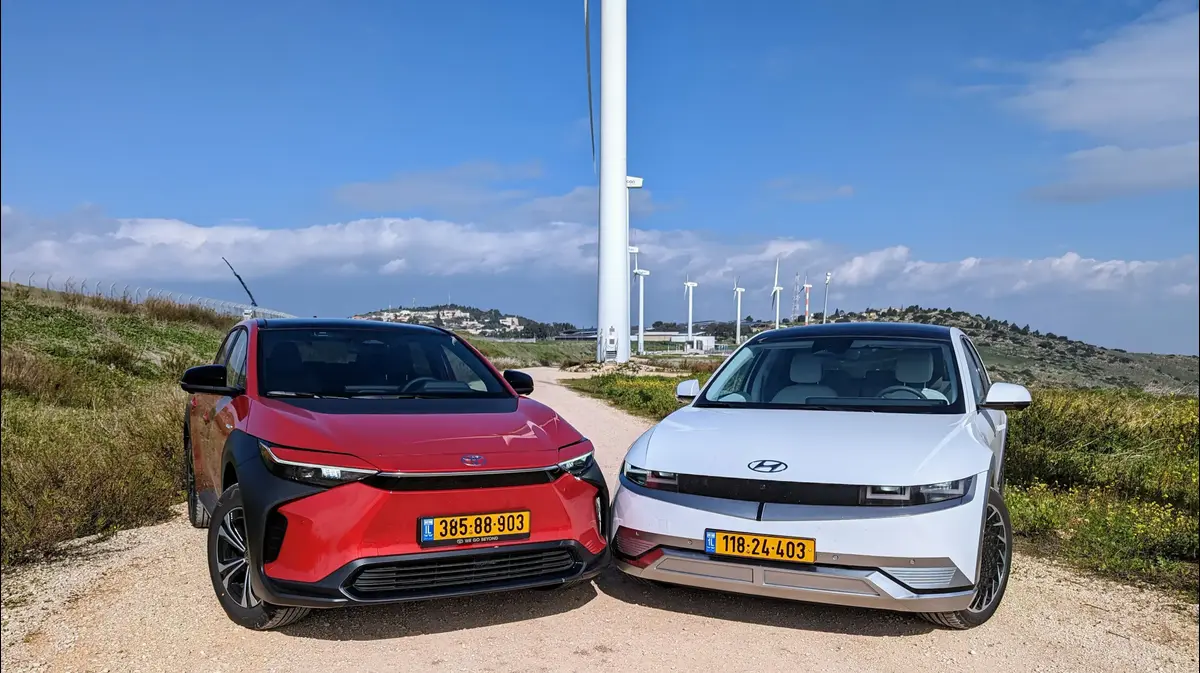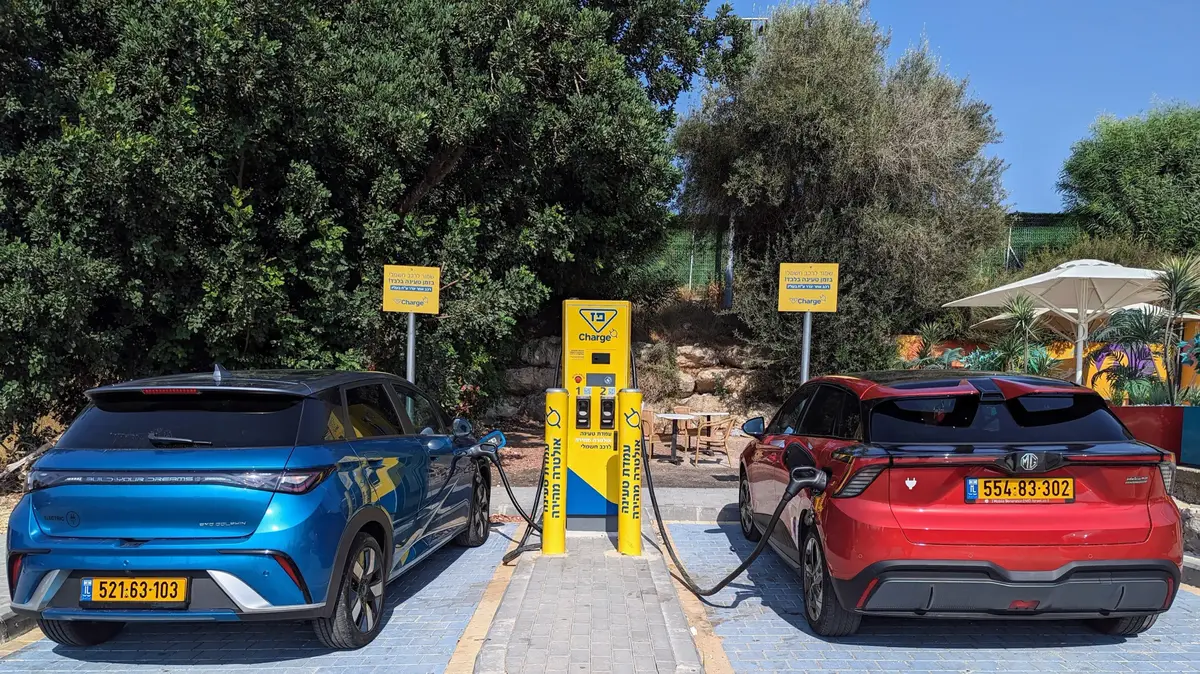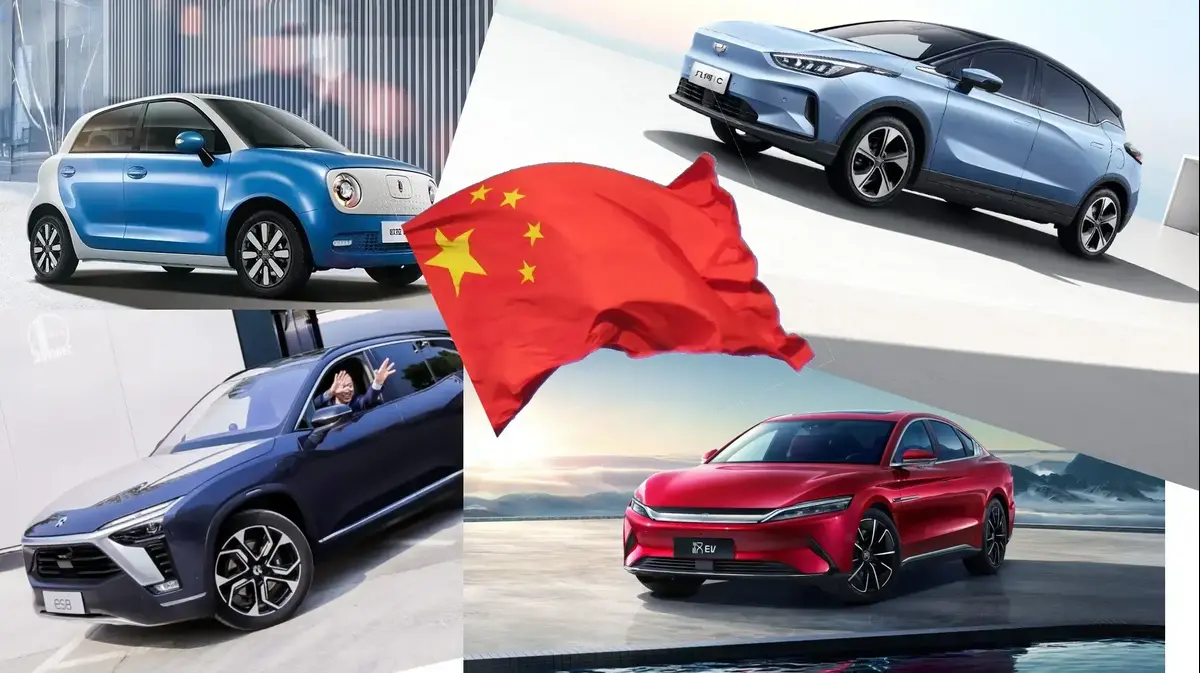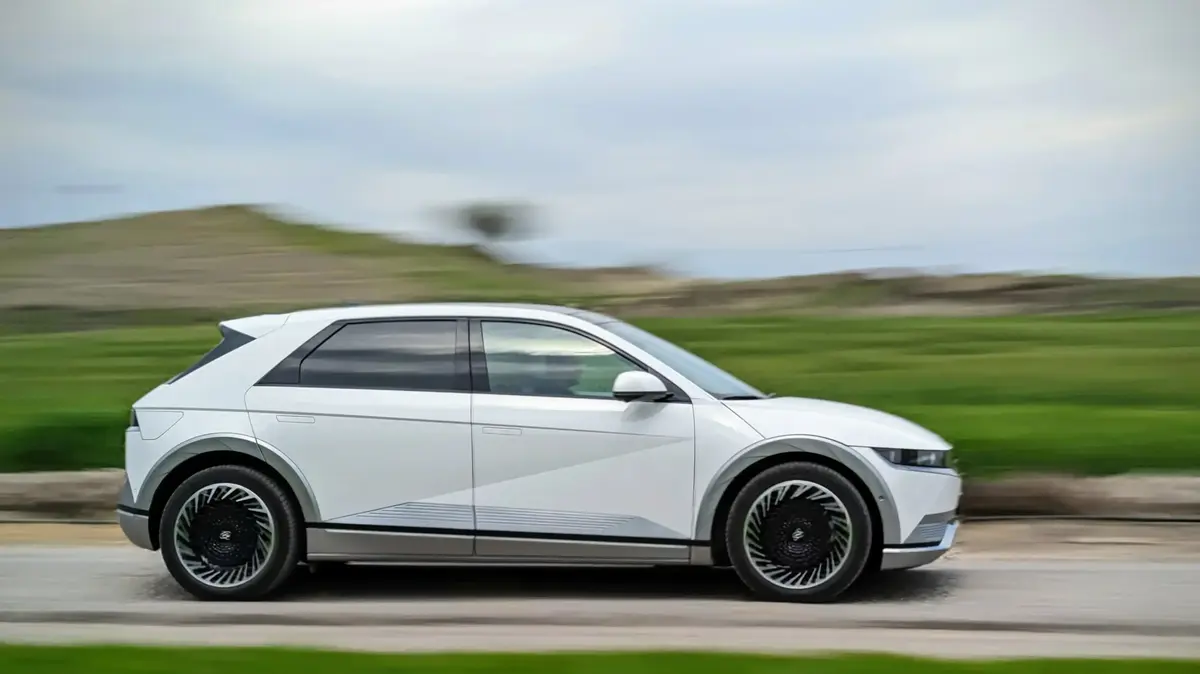Traveled Tax: Is this the taxation trick of electric vehicles
In the absence of the ability to "paint" electricity for transportation, and with the expected increase in the number of electric vehicles in the coming years, the state will have to find more creative ways to collect tax. Doron must, CEO of Solomon Motors, thinks the solution will be a tax cut
Nissan Leaf, the state will already find out how to drink the money you have saved
Nissan Leaf: First Driving (Photo: Keenan Cohen, Nir Ben Tovim)
It is no secret that the automobile industry is in these years undergoing a global revolution, the electrical revolution. Her buds were already sparkling, and the direction is clear: beyond electricity. Admittedly, we are not there yet, and the road to eliminating the internal combustion engine is still long. But the trend has begun, and decision makers are preoccupied with these developments.
It would be appropriate to characterize that three issues, related to the transition to an electric vehicle that is taking place in the transport industry, concern decision makers. The first is that the automotive world is switching to electricity and the supply of cars powered by internal combustion engines will decrease. This has implications for the infrastructure needed to charge the electric vehicles in public and private space, against the demand that will be reduced to the required infrastructure for internal-combustion engines, especially the future deployment of the gas stations.
The second is that Israel declares to be "electrified" when it comes to the field of vehicles. This is because such a procedure will help to treat the air pollution problems and the resulting illness. In fact, even if the State of Israel does not want the "electrocution" procedure, it has not so much choice. Because the world is going there and automakers will offer more and more electric models in the future, driven by internal combustion engines.
More in Walla! NEWS More in Walla! NEWSMG will be the first to market a Chinese electric vehicle
To the full articleThe third issue, which is perhaps critical for the country from the earlier ones. The one the State of Israel wants but fears is the gradual transition to electric-powered vehicles. This is because the vehicle and fuel taxation model will change.
At a recent meeting of the Insurance Agency Bureau in the city of Eilat, the tax authority's director, Eran Yaakov, said that in 2018, vehicle-related taxes were collected, both for fuel and for importing new vehicles and licenses, totaling NIS 40 billion. From a tax cake of over NIS 300 billion, this is a significant share of more than 13% of the state's revenue.
So how do you melt the electricity into cars without dissolving the electricity we consume at home? After all, it is difficult if not impossible to "paint" the electricity consumed by the cars. Anyone who is entertained by the idea that the state will levy tax on the electricity consumed by the vehicles alone, recalls the pirate cable periods in the late 1980s and the earlier era of anti-corruption.
More in Walla! NEWS More in Walla! NEWSMonster and named car taxation
To the full articleTaxation cannot be based on electricity consumption
Road test: Mitsubishi Outlander PHEV (Photo: Keenan Cohen, Nir Ben Tovim)
so what are we doing? How do you dissolve the energy for electric vehicles, appropriately, that will allow one side of the electric vehicle revolution to break through here too with its benefits, while allowing the country to "live in peace" with tax implications? The solution is simple - a travel tax or as it is sometimes mistakenly called a congestion tax.
Instead of dissolving the electric vehicle's fuel, ie electricity consumption, a tax will be levied allowing taxation linking the use of infrastructure to the tax levy. A traveled tax overcomes the problem of inability to dissolve electricity and offers another model. In this model, taxation is influenced by usage. Beyond the tax deducted from the number of miles the vehicle travels will incur a high cost to anyone entering the city (congestion tax) or to a busy road that needs to be reduced. Beyond that, it can be a tax with social implications. If desired, the state could encourage peripheral mobility and, for example, impose a lower tax on those coming from the periphery.
Traveled tax can be affected by various parameters, geography (congestion versus peripheral encouragement), degree of air pollution (tax rate imposed by the degree of pollution of vehicles) and in the future even depend on the number of passengers when a vehicle is installed that reports on the passenger message in the vehicle (occupancy).
Beyond such a new taxation method, the state will be a tool for taxation with an impact on road users' behavior, increasing vehicle use efficiency, switching to electric public transport, reducing air pollution and macroeconomic impacts on the economy, such as promoting the periphery.
Doron must be CEO of Shlomo Motors Ltd. The importer of BYD electric buses from the Shlomo Group

